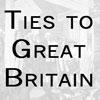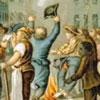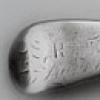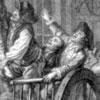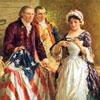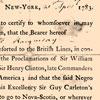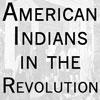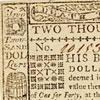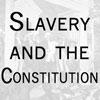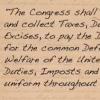Virginia elites were closely tied to British merchants through tobacco, for example, as well as the slave trade and elites’ consumption of British luxury goods. As you read this excerpt from a 1766 letter written by George Mason to the Committee of Merchants in London, consider how Mason defines his relationship with Britain and the Monarchy.
George Mason, Letter to London Merchants, June 6, 1766
To the Committee of Merchants in London
GENTLEMEN Virginia Potomack River June 6th 1766
… The Epithets of Parent & Child have been so long applyed to Great Britain & her Colonys, that Individuals have adopted them, and we rarely see anything, from your Side of the Water, free from the authoritative Style of a Master to a School-Boy….
Is not this a little ridiculous, when applyed to three Millions of as loyal & useful Subjects as any in the British Dominions, who have been only contending for their Birth-right, and have now only gained, or rather kept, what cou’d not, with common Justice, or even Policy, be denyed them? …
Let our fellow-Subjects in Great Britain reflect that we are descended from the same Stock with themselves, nurtured in the same Principles of Freedom; which we have both suck’d in with our Mother’s Milk: that in crossing the Atlantic Ocean, we have only changed our Climate, not our Minds, our Natures & Dispositions remain unaltered; that We are still the same People with them, in every Respect; only not yet debauched by Wealth, Luxury, Venality, & Corruption; and then they will be able to judge how the late Regulations have been relished in America.
These Evils are, for the present, removed. Praised be Almighty God! Blessed be our most gracious Sovereign! Thanks to the present mild & prudent Temper of Parliament. Thanks to the wise & honest Conduct of the present Administration. Thanks to the unwearied Diligence of our Friends the British Merchants, & Manufacturers; Thanks to that happy Circumstance of their private Interest being o interwoven with ours, that they cou’d not be separated….
America has always acknowledged her Dependence upon Great Britain. It is her Interest, it is her Inclination to depend upon Great Britain. We readily own that these Colonys were first setled, not at the Expence, but under the Protection of the English Government; which Protection it has continued to afford them; and we own too, that Protection & Allegiance are reciprocal Dutys. If it is asked at whose Expence they were setled? The Answer is obvious at the Expence of the private Adventurers our Ancestors; the Fruit of whose Toil and Danger we now enjoy.
We claim Nothing but the Liberty & Privileges of Englishmen, in the same Degree, as if we had still continued among our Brethren in Great Britain: these Rights have not been forfeited by any Act of ours, we can not be deprived of them, without our Consent, but by Violence & Injustice ….
These are the Sentiments of a Man, … who tho’ not born within the Verge of the British Isle, is an Englishman in his Principles, … firmly attached to the present royal Family upon the Throne, unalienably affected to his Majesty’s sacred Person & Government, in the Defence of which he wou’d shed the last Drop of his Blood; … who adores the Wisdom & Happiness of the British Constitution; and if He had his Election now to make, wou’d prefer it to any that does, or ever did exist. I am not singular in this my Political Creed; these are the general Principles of his Majesty’s Subjects in America; they are the Principles of more than nine-tenths of the People who have been so basely misrepresented to you, and whom you can never grant too much; because you can hardly give them any thing, which will not redound to the Benefit of the Giver….
A VIRGINIA PLANTER.
The colonies in North America and Britain were closely tied through shared nationality and economics. Under the mercantilist system, the colonists were expected to provide raw materials for British manufacture and then to purchase the finished goods.
The letter also suggests the degree to which colonists, even future Patriots such as George Mason, still thought of themselves as British citizens just a decade before the drafting of the Declaration of Independence. These close ties between colonists and British merchants would play an important role as Britain imposed measures to regulate the colonial economy.
Source: George Mason, “Mason’s Letter to London Merchants,” letter, June 6, 1766, Gunston Hall: Home of George Mason, accessed September 20, 2011. Also in Robert A. Rutland, editor, The Papers of George Mason, 1725-1792, Vol. I, 1749-1778 (Chapel Hill: University of North Carolina Press, 1970), 65-72.


